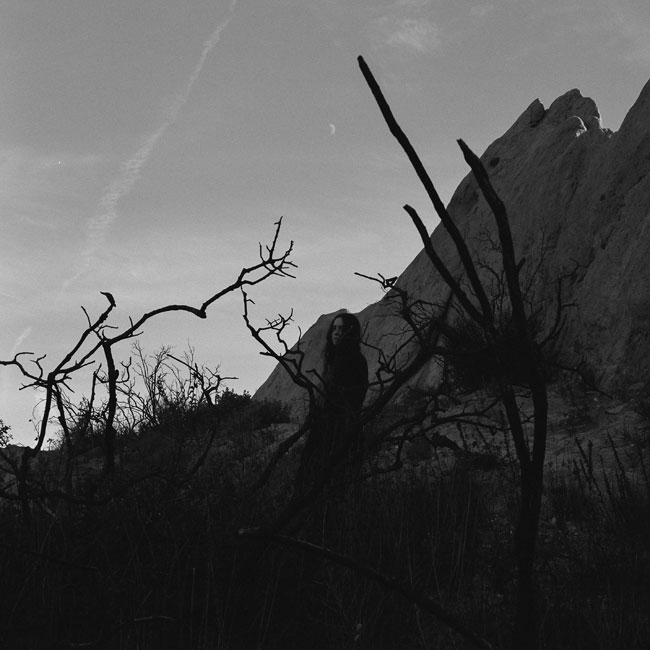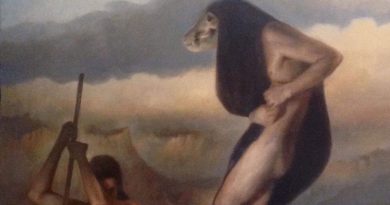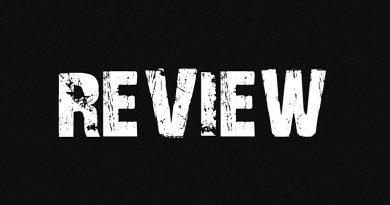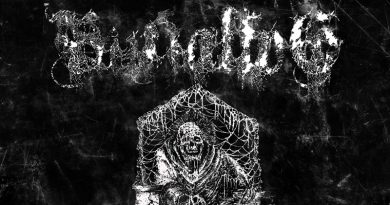Review: Emma Ruth Rundle ‘Orpheus Looking Back’ EP
It seems strange, in this digital era, to continue to think of music as albums, EPs, and singles. Even when tracks are bundled together, they can now be listened to, bought, and downloaded individually, as the listener prefers rather than as the artist intended. It’s a more convenient approach and one which increases the audience’s agency, but it’s one that makes me nostalgic.

I think back to chart-topping singles with b-sides that allowed a band’s weirder, more experimental side to shine through or even a-sides that, bewilderingly, would never appear on any album. I remember thinking how exciting these discoveries could be, the web of self-references allowed by remixes and live revisions, and I feel old to think it when I realise that most of my favourite examples are from the 90s.
It’s fitting that Emma Ruth Rundle, whose Engine Of Hell was redolent with achingly 90s references to bands like Throwing Muses and Smashing Pumpkins, should build a stand-alone EP out of tracks from that album’s recording sessions. Only three tracks, admittedly, and barely nine minutes long as a whole, but enough to trigger that painful looking-back, that sense of being unmoored from time that true nostalgia creates.
Engine Of Hell showcased a stripped-back Rundle, with the focus very much on acoustic guitar, piano, and voice and it’s no surprise that Orpheus Looking Back – its title both a warning against those backward glances into our past and an admission of their inevitability – takes a similar, minimal approach.
As a companion to Engine Of Hell, it offers contrasts and comparisons which only increase the power of both works…
Gilded Cage, the EP’s opening track, is perhaps the most upbeat of the trio and, like some of its siblings on Engine Of Hell, employs a sinuous melody that wouldn’t feel out of place on one of Kristin Hersh’s solo outings. It’s also one that fans may have already heard, having been played as part of recent live shows, a fact which only heightens that feeling of being in two places simultaneously.
Pump Organ Song is a bleaker prospect as the keening lyrics – ‘We traveled in silence for years together / Eating the food, we drank the wine / Everyone saying we looked light as a feather / But silence is heavy and so is this time’ – document the collapse of Rundle’s marriage – over the slow, churning notes of a pump organ. It feels like a folk lament that’s played long after the tourists have left, after the lamps have been dimmed and the old questions are asked once again. The final, drawn-out lines of ‘How does it end / How does it end’ remain unanswered by anything beyond the organ’s final, failing breaths.
St Non, named after the mother of Wales’ patron St David, closes out the EP with delicate plucked guitar and a plea of ‘Save me / Save me’. It’s a mournful song of pain and scourging – St Non is herself the patron saint of rape victims and is said to have suffered such pain during David’s birth that her fingers left indentations in the rocks she lay on – that, again, ends without answers or even an ambivalent fade-out.
As an EP, Orpheus Looking Back is an exemplar of the form, with no filler tracks that were best left on the cutting room floor. As a companion to Engine Of Hell, it offers contrasts and comparisons which only increase the power of both works. It is short but bitter-sweet, a glimpse of ghosts in a room once all-too-familiar.
Label: Sargent House
Band Links: Official | Facebook | Bandcamp | Twitter | Instagram
Scribed by: Daniel Pietersen



